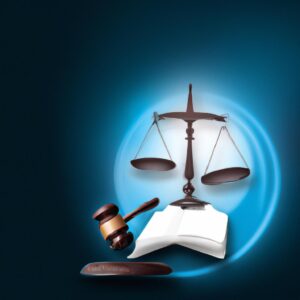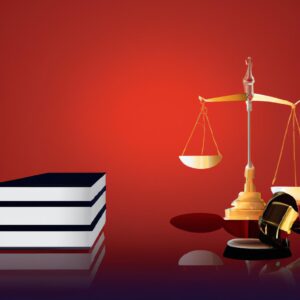Guardian custody, a crucial aspect of family law, plays a significant role in ensuring the well-being and protection of minors. As experienced attorneys at Morgan Legal Group in New York City, we specialize in estate planning, probate, elder law, Wills, and trusts, including the complex legal intricacies surrounding guardian custody. In this article, we will delve into the essential considerations and duties involved in appointing a guardian for minor children and the legal framework that governs this critical aspect of family protection.
Understanding Guardian Custody in Estate Planning
Understanding guardian custody is crucial for ensuring that your wishes are carried out effectively when it comes to estate planning. Guardian custody involves appointing a responsible individual to make decisions for minor children or incapacitated adults in the event of your incapacity or passing. This key aspect of estate planning helps to provide stability and security for your loved ones during challenging times.
It is important to carefully consider who you designate as a guardian in your estate plan. This decision should not be taken lightly, as the appointed individual will play a significant role in the lives of your loved ones. Consider factors such as the guardian’s relationship with the children, financial stability, values, and parenting style. Creating a detailed plan outlining your desires and expectations for the guardian will help ensure a smooth transition and minimize potential conflicts.
Key Factors to Consider When Appointing a Guardian
When appointing a guardian for a minor child, several key factors must be carefully considered to ensure the child’s best interests and well-being are protected. One important factor to consider is the guardian’s relationship with the child. The guardian must have a strong and positive relationship with the child to provide the necessary emotional support and care.
- Legal Capacity: The guardian must have the legal capacity to care for the child and make important decisions on their behalf.
- Stability: The guardian should be emotionally stable and have a stable living situation to ensure the child’s safety and security.
| Factor | Importance |
|---|---|
| Relationship with Child | Crucial for emotional support |
| Legal Capacity | Essential for decision-making |
| Stability | Key for safety and security |
Navigating the Legal Process of Establishing Guardian Custody
When seeking to establish guardian custody, it is crucial to navigate the legal process with precision and understanding. The process involves various steps and considerations that must be carefully addressed. Here are some key points to keep in mind:
- Consult with an experienced attorney specializing in family law to gain insights into the specific requirements and procedures involved in establishing guardian custody.
- Prepare and file the necessary legal documents with the appropriate court, including a petition for guardianship and supporting documentation outlining the reasons for seeking guardianship.
- Attend court hearings as required and comply with any requests or orders from the court throughout the process.
Additionally, it is essential to gather all relevant information and evidence to support your case for guardian custody. This may include providing proof of the individual’s incapacity or inability to make decisions for themselves. By following the legal process diligently and with the guidance of a knowledgeable attorney, you can increase your chances of successfully establishing guardian custody over the individual in need of protection.
| Key Documents | Important Considerations |
|---|---|
| Guardianship Petition | Clearly state the reasons for seeking guardianship and specify the powers you are requesting as a guardian. |
| Evidence of Incapacity | Provide medical records or assessments from healthcare professionals to support your claim for guardian custody. |
Recommendations for Choosing the Right Guardian for Your Loved Ones
When choosing a guardian for your loved ones, it is crucial to consider several key factors to ensure that the appointed individual is the right fit for the role. To make the best decision, follow these recommendations:
- Evaluate Trustworthiness: Look for someone who is reliable, responsible, and trustworthy to take on the important role of guardian.
- Consider Relationship: Choose someone who has a close and loving relationship with your loved ones to ensure they feel comfortable and cared for.
- Assess Financial Stability: Select a guardian who is financially stable and capable of providing for the needs of your loved ones.
| Recommendation | Description |
|---|---|
| Evaluate Trustworthiness | Look for someone trustworthy and responsible. |
| Consider Relationship | Choose someone with a close and loving relationship with your loved ones. |
| Assess Financial Stability | Select a guardian who is financially stable. |
Q&A
Q: What is guardian custody?
A: Guardian custody is a legal arrangement where a guardian is appointed to care for a minor child or adult who is deemed unable to care for themselves.
Q: How is a guardian chosen?
A: A guardian is typically chosen by the court based on factors such as the best interests of the individual in need of care and the suitability of the guardian.
Q: What responsibilities does a guardian have?
A: A guardian has the responsibility to provide for the physical, emotional, and financial well-being of the individual under their care.
Q: Can a guardian custody arrangement be altered?
A: Yes, guardian custody arrangements can be altered if circumstances change or if it is determined that another guardian would better serve the individual in need of care.
Q: Are there different types of guardian custody arrangements?
A: Yes, there are different types of guardian custody arrangements, such as temporary guardianship, limited guardianship, and co-guardianship, depending on the specific needs of the individual in need of care.
Q: How can someone establish guardian custody?
A: To establish guardian custody, one must typically file a petition with the court and present evidence to support the need for a guardian to be appointed.
Q: What rights does a guardian have?
A: A guardian has the right to make decisions on behalf of the individual under their care, such as medical decisions, educational decisions, and financial decisions, as granted by the court.
To Wrap It Up
In conclusion, guardian custody plays a crucial role in ensuring the well-being and protection of children in various situations. Whether it be a temporary arrangement or a permanent solution, having a guardian who is dedicated to their care and safety is essential. By understanding the responsibilities and rights associated with guardian custody, individuals can make informed decisions that prioritize the best interests of the child. Remember, every child deserves to have a safe and nurturing environment, and a guardian can help provide that sense of stability and support. Thank you for exploring the important topic of guardian custody with us.








